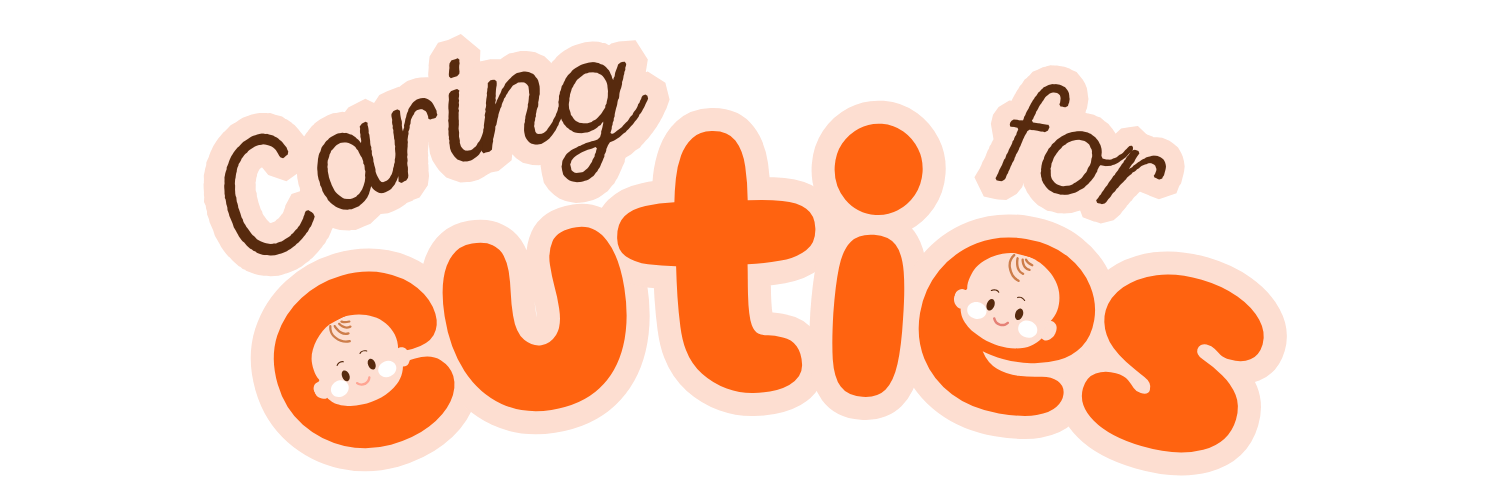Is your way of handling newborn feeding schedules causing more stress than peace? It’s vital to have a good newborn feeding guide for your baby’s growth and your own calm. A well-planned feeding schedule ensures your baby gets the nutrients they need to grow strong.

Knowing the value of newborn feeding schedules is the first step to a successful feeding plan. By steering clear of common errors and making a flexible guide, you can help your baby develop good eating habits. This also lowers the chance of future feeding issues.
Key Takeaways
- A well-structured newborn feeding schedule is essential for your baby’s development
- Avoiding common mistakes in newborn feeding schedules can reduce stress and promote harmony
- Creating a flexible newborn feeding guide can help your baby develop healthy eating habits
- Newborn feeding schedules should be tailored to your baby’s unique needs and preferences
- A good newborn feeding schedule can help reduce the risk of feeding problems
Understanding the Importance of Newborn Feeding Schedules
A well-planned feeding routine is key for a newborn’s growth and health. A newborn feeding chart helps parents keep track of their baby’s eating habits. It ensures the baby gets all the nutrients they need. A regular feeding schedule also helps a baby sleep better, which is good for everyone.
Creating a feeding routine for newborns needs balance and flexibility. It’s important to have a regular schedule but also be ready to change it when needed. A feeding chart is useful for tracking and spotting any issues early.
Why Feeding Schedules Matter for Baby Development
A feeding schedule is very important for a baby’s early development. It helps the baby’s digestive system work well. This leads to better nutrient absorption and overall health.
The Role of Feeding Patterns in Sleep Quality
Feeding patterns greatly affect a baby’s sleep. A consistent feeding schedule helps a baby sleep better and longer. A feeding chart helps parents find the best schedule for their baby and make changes if needed.
Balancing Structure and Flexibility
While a feeding routine is vital, being flexible is also important. A feeding chart helps parents find the right balance. It ensures the baby gets the nutrients they need while allowing for flexibility.
The Rigid Schedule Trap: Why Strict Timing Can Backfire
A breastfeeding schedule for newborns can help set a routine. But, it’s key to avoid a strict schedule. A flexible schedule lets you adjust as the baby grows and changes. This keeps the schedule working well.
Some important things for a flexible schedule include:
- Watching for the baby’s hunger signs to pick the best times to feed
- Being ready to change the schedule as the baby’s needs shift
- Not over-scheduling, which can cause stress for both the baby and mom
Choosing flexibility in a breastfeeding schedule helps make feeding more effective and sustainable. It lets parents meet their baby’s unique needs, leading to a healthier feeding experience.
Being flexible in a breastfeeding schedule is vital for a good feeding experience. As the baby grows, the schedule must change to fit new needs. By being open to changes and focusing on the baby’s comfort, parents can create a nurturing space for their child to grow.
Identifying Your Baby’s Hunger Cues and Feeding Patterns
It’s key to understand your baby’s hunger signs for a good feeding schedule. A formula feeding schedule for newborn helps make sure your baby gets enough nutrients. Look for early hunger signs like rooting, sucking, and lip smacking to start feeding early.
Feeding tips for newborns stress being flexible and listening to your baby’s needs. Different cries mean different things, like hunger, tiredness, or discomfort. Knowing these can help you create a better feeding plan.
Early Hunger Signs to Watch For
- Rooting: When your baby’s cheek or lips are stroked, they will turn their head towards the stimulus.
- Sucking: Your baby may suck on their thumb or fingers, indicating a desire to feed.
- Lip smacking: This can be a sign that your baby is ready to feed.
Creating a Feeding Log That Works
Keeping a feeding log can track your baby’s eating patterns and spot areas for betterment. It helps ensure your baby gets the right nutrients. This is vital when using a formula feeding schedule for newborn, helping you adjust the schedule as needed.
Common Signs Your Current Feeding Schedule Isn’t Working
Figuring out if your newborn’s feeding schedule is right can be tough. Newborn feeding patterns differ, and what suits one baby might not fit another. Signs like fussiness, gas, and spit-up often show that something’s off.
These symptoms suggest your baby might not be getting enough milk or is uncomfortable while eating. It’s key to watch your baby’s newborn feeding patterns and tweak the schedule if needed.
- Fussiness during or after feedings
- Gas and bloating
- Spit-up or vomiting
- Changes in stool or urine output
Spotting these signs and tweaking the feeding schedule can make your baby more comfortable.
It’s vital to monitor your baby’s newborn feeding patterns and tweak the routine as necessary. This might mean changing how often or how long you feed, or trying different positions.
| Sign | Description | Adjustment |
|---|---|---|
| Fussiness | Baby is fussy during or after feedings | Try different feeding positions or adjust the feeding schedule |
| Gas and bloating | Baby is experiencing gas or bloating | Burp the baby more frequently or try a different feeding position |
| Spit-up or vomiting | Baby is spitting up or vomiting | Adjust the feeding schedule or try a different feeding position |
Establishing Healthy Newborn Feeding Schedules
Creating a healthy feeding routine for newborns is key. It’s about making a schedule that fits the baby’s needs. A good schedule helps the baby get the nutrients they need to grow.
There are a few things to think about when setting up a feeding schedule. Breastfeeding is a great way to feed the baby, and you can plan out when to breastfeed. If you’re formula feeding, you can also plan out when to feed with formula.
Here are some tips for a healthy feeding schedule:
- Keep a feeding log to track when the baby eats and notice any changes.
- Make a routine with regular feeding times but also be flexible for the baby’s needs.
- Try a mix of breastfeeding and formula feeding to give the baby all the nutrients they need.
A good feeding schedule is important for a baby’s growth. By planning out feedings, parents can help their baby grow strong and develop a good relationship with food.
Every baby is different, so what works for one might not work for another. Being flexible helps parents find a feeding schedule that works for their baby and helps them bond over meals.
| Feeding Type | Schedule | Benefits |
|---|---|---|
| Breastfeeding | Every 2-3 hours | Nutrients and bonding |
| Formula Feeding | Every 3-4 hours | Convenience and flexibility |
| Combination Feeding | Every 2-4 hours | Balance and adaptability |
The Night Feeding Dilemma: Finding Balance
Creating a newborn feeding guide is key for a baby’s growth. The night feeding challenge is a big hurdle for parents. It’s vital to find a balance between the baby’s needs and the parents’ sleep. A good feeding routine for newborn can solve this problem.
To make a good nighttime feeding plan, try these tips:
- Start a consistent sleep routine to help the baby learn to calm down on their own
- Look for signs like rooting or sucking on hands to know when the baby is hungry
- Use a newborn feeding guide to figure out how often and for how long to feed
By using these tips and making a custom feeding routine for newborn, parents can find a balance. This ensures their baby gets the nutrients they need for growth.

Adjusting Schedules as Your Baby Grows
As your baby grows, their feeding needs change. It’s key to update your newborn feeding chart to meet their nutritional needs. Newborns often need to eat frequently, but as they get older, feedings can be spaced out.
It’s important to understand your baby’s growth patterns to adjust their feeding schedule. For example, during growth spurts, they might need to eat more often. A newborn feeding chart can help you track and adjust their schedule.
Month-by-Month Feeding Changes
Here are some general guidelines for adjusting your baby’s feeding schedule as they grow:
- 0-3 months: Feedings are typically 8-12 times per day
- 4-6 months: Feedings can be spaced out to 6-8 times per day
- 7-9 months: Feedings can be reduced to 4-6 times per day
Remember, every baby is different. It’s vital to watch for hunger cues and adjust their feeding schedule as needed. A breastfeeding schedule for newborns should be flexible to meet your baby’s changing needs.
Transitioning Through Growth Spurts
Growth spurts can be tough, but a good newborn feeding chart helps. Be ready to increase feedings during these times. If you’re unsure about your baby’s feeding schedule, don’t hesitate to ask a healthcare professional.
Working With Your Partner on Feeding Routines
Creating a feeding routine for your newborn can be tough, but it’s doable with your partner. A good formula feeding schedule for newborn ensures your baby eats well. It also lets both parents be involved in feeding.
Sharing Feeding Responsibilities
Sharing feeding duties can make your family bond stronger. It feels like teamwork. Here are some tips for sharing feeding tasks:
- Alternate feedings: Take turns feeding your baby to give each other a break and allow for rest.
- Prepare bottles together: If you’re using a formula feeding schedule for newborn, prepare bottles together to ensure that your baby’s feeding needs are met.
- Communicate effectively: Discuss your baby’s feeding schedule and any concerns you may have to ensure that you’re both on the same page.
Communication Strategies for Parents
Good communication is essential for teamwork in feeding your newborn. Here are some newborn feeding tips:
By working together and following these tips, you can create a feeding routine that suits your family. It will ensure your newborn gets the best care.

Remember, every baby is different. What works for one family might not work for another. Be flexible and don’t hesitate to ask for help if you need it.
| Feeding Schedule | Responsibilities |
|---|---|
| Formula feeding schedule for newborn | Alternate feedings, prepare bottles together |
| Breastfeeding schedule | Support and encouragement, help with latching |
When to Seek Professional Help with Feeding Schedules
Creating a good newborn feeding routine is key for your baby’s growth and health. But, some parents find it hard to establish newborn feeding routine that fits their family. If you’re having trouble with newborn feeding patterns, it’s time to get professional help.
Signs you might need help include ongoing feeding problems like latching issues or not wanting to eat. A lactation consultant or feeding expert can find the root of these problems. They can also help you come up with a plan to solve them.
When you talk to a professional, be sure to share all about your newborn feeding patterns and any challenges. This way, they can give you advice that’s just right for your baby’s needs.
To find a lactation consultant or feeding expert, ask your doctor for a referral or look online. With the right support, you can establish newborn feeding routine that’s good for your family and helps your baby do well.
Recap
Creating effective Newborn Feeding Schedules is crucial for your baby’s growth and development. A well-structured feeding routine not only ensures your baby receives the necessary nutrients but also promotes better sleep and reduces parental stress. By avoiding common mistakes and being flexible, parents can establish a feeding plan that adapts to their baby’s unique needs, fostering healthy eating habits and minimizing future feeding issues.
Conclusion: Creating a Sustainable Feeding Routine That Works for Your Family
Remember, being flexible and adaptable is key when dealing with newborn feeding schedules. It’s important to have a routine, but be ready to make changes as your baby grows. Every baby is different, so what works for one family might not work for another.
The best feeding routines mix structure with being able to adjust to your baby’s needs. Paying attention to your baby’s hunger cues and feeding patterns helps create a flexible routine. If you’re facing challenges, don’t hesitate to seek help from professionals. They can offer valuable advice tailored to your family’s needs.
The aim is not to achieve perfection but to find a feeding routine that supports your baby’s growth. With patience, open communication, and a flexible mindset, you can establish a feeding rhythm that suits everyone in your family.
FAQ
What are the most common mistakes parents make with newborn feeding schedules?
Some common mistakes include: – Not adjusting the schedule to fit the baby’s needs – Ignoring hunger cues and sticking to a strict timeline – Failing to create a consistent nighttime feeding routine – Not changing the schedule as the baby grows
Why are newborn feeding schedules so important for baby development?
A consistent feeding routine is key for a newborn’s growth. It helps with sleep, weight gain, and getting the right nutrients. It also gives structure and predictability, which can reduce fussiness and improve overall health.
How can a rigid feeding schedule backfire?
A strict schedule can cause problems like overtiredness, gas, and less milk. Newborns have different hunger cues and needs. It’s important to balance structure with flexibility to meet your baby’s unique needs.
What are some early hunger signs to watch for in newborns?
Look for signs like rooting, sucking motions, hand-to-mouth movements, and light fussing. Paying attention to these can help you feed your baby before they get too hungry and upset.
How can I create a feeding log to track my newborn’s patterns?
A feeding log can help you understand your newborn’s feeding patterns. Record the time, length, and type of feeding, along with any other details. This can help you spot trends and adjust your schedule as needed.
What are some signs that my current feeding schedule isn’t working?
Signs that your schedule isn’t working include fussiness, gas, spit-up, and poor weight gain. If your baby is consistently uncomfortable or not gaining weight, it’s time to make changes.
How do I establish a healthy breastfeeding schedule for my newborn?
Experts suggest breastfeeding on demand to help establish a good milk supply. Aim for 8-12 feedings a day, adjusting to your baby’s cues. This ensures your baby gets the nutrients they need.
What tips can you provide for creating a formula feeding schedule?
For formula feeding, offer 2-3 ounces every 2-3 hours. Feed on demand, not just by the clock. As your baby grows, you can increase the amount and spacing of feedings.
How can my partner and I work together to establish a feeding routine?
Talk openly with your partner about feeding duties and make a plan together. Discuss taking turns, bottle-feeding breastmilk, and other ways to share the load. This ensures both parents are involved and in sync with the feeding schedule.
When should I seek professional help with my newborn’s feeding schedule?
If you’re struggling with a feeding routine, facing persistent feeding issues, or have growth concerns, seek help. A lactation consultant or pediatrician can offer personalized advice and support to get your baby’s feeding on track.





